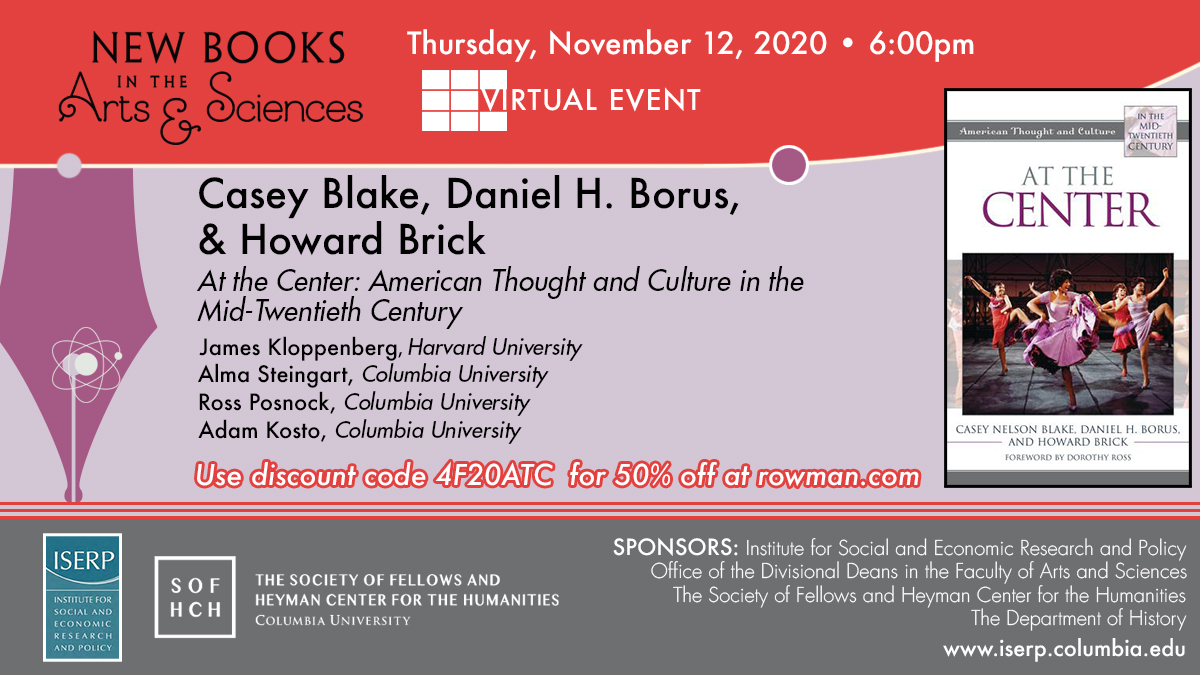november, 2020
12nov6:00 pm- 7:00 pmCelebrating Recent Work by Casey Blake, Daniel H. Borus, and Howard Brick
Event Details
Celebrating Recent Work by Casey Blake, Daniel H. Borus, and Howard Brick
Event Details
New Books in Arts and Sciences Presents:
Celebrating Recent Work by Casey Blake, Daniel H. Borus, and Howard Brick
At the Center: American Thought and Culture in the Mid-Twentieth Century
Virtual Event: Register for the Zoom wbinar here.
Email iserp-events@columbia.edu for Zoom dail-in numbers.
Order at www.rowman.com or call toll free: 800-462-6420. Offer expires 12/1/20.
Orders may also be placed with the promotional order form to the right of this page.
Howard Brick, Louis Evans Chair in U.S. History, University of Michigan
Time
(Thursday) 6:00 pm - 7:00 pm


